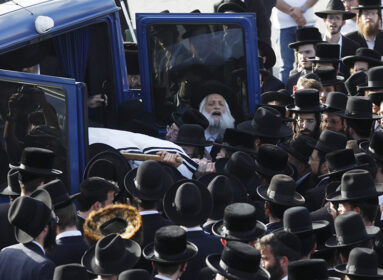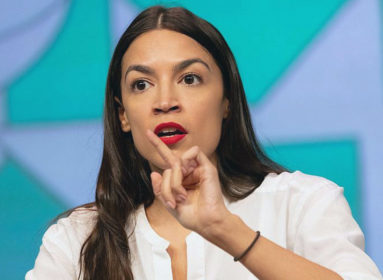WESTPORT – Rabbi Robert Orkand is the closest thing to a historian of Jewish Westport. Now, after more than 30 years as a spiritual leader of Temple Israel, he will move to Boston with his wife to be closer to family.
The senior Jewish clergy-member in Westport spoke with the Ledger about how the community has grown and changed, and about the issues of greatest concern and hope as he retires from formal Jewish communal work.
Q: As a Westport Jewish leader since 1982, how have you seen the community evolve?
A: When I arrived in 1982, Temple Israel had about 500 families and was the only synagogue in Westport. Not only was the community smaller, but Temple Israel needed to be attractive to Jews of all kinds while still maintaining its identity as a Reform synagogue.
Part of my role was helping people understand that the “Reform” label covers a very wide swath of Jewish life and that the Reform tent is really big enough to hold whoever wants to be within it, and convincing people that being Reform is not about what we don’t do but about the things we choose to do. I grew up in a Reform synagogue in Los Angeles and that was the attitude. My parents moved to L.A. in the ‘40s, I think in part to escape the kind of repressive Orthodoxy that they had grown up with in the Bronx. I consider myself lucky that they still felt a need to connect Jewishly and to educate their children and I’m amazed that they knew enough about Reform Judaism to choose it.
In my own rabbinic generation, there was a lot of talk about rediscovering the things we had as a movement rejected or about which we were abysmally ignorant. The Reform Jewish pendulum has moved a great deal toward what used be called the “Right,” which I see as moving back toward tradition. With each generation of Reform rabbis, there’s been a greater emphasis on Torah at the center of Jewish life.
Before the establishment of Temple Israel, Jews would go to [Conservative] Congregation Beth El and [Modern Orthodox] Beth Israel Synagogue, both in Norwalk. Among the founders of Temple Israel in 1948 were members of Congregation Beth El in Norwalk.
One of the profound changes in Westport was the establishment of The Conservative Synagogue because it gave people a choice and, from the outside looking in, allowed us to be a real Jewish community while before, we were a Jewish community centered around a Reform synagogue. There were people who left us, usually because a member of the family had grown up Conservative and that’s what they were used to. I considered that a good thing because it allowed us to be unabashedly Reform and allowed a choice in the community.
[Modern Orthodox] Beit Chaverim Synagogue of Westport/Norwalk was founded and that continued the movement toward Westport being a dynamic, growing Jewish community.
I think that we have experienced what the Jewish community as a whole is experiencing, which is a different kind of relationship with the synagogue, with a small “s.” That is, younger Jews find it hard to understand the concept of supporting the synagogue for the reason that we need one in the community and, with wonderful exceptions, there isn’t the same sense of institutional loyalty that there used to be. The majority of the Jews in Westport and Weston are relative newcomers, with exceptions, so there isn’t the Jewish institutional memory or history. What I also see as still true is that many Jewish parents, if not most, want a Jewish education for their children, which seems to be the primary reason why people join synagogues. However – and again with many exceptions – those same parents don’t necessarily see the value of Jewish education and Jewish knowledge for themselves. Therefore, when the child has become bar or bat mitzvahed, parents consider leaving the synagogue because they lack a connection to the institution.
Q: How is it possible to overcome that challenge?
A: How do you help both parents and children – and I believe that it begins with the parents – understand that religion is not simply an activity vying for their children’s time? Part of the issue is that American Jews were eventually faced with a reality far different from any known in Jewish history: living in a completely free and open society despite the occasional attempts to restrict, set quotas, etc. That is, American Jews were faced with choices that were essentially heretofore unknown in Jewish history. So we had learned to adapt very well to oppression and living in closed societies; now we’re learning how to adapt to an open society with all of its benefits and with all of its challenges. The result has been that liberal American Judaism has become more “Protestant” in its functioning, meaning that more and more religion has become a one-day-a-week activity. It was like that when I arrived in 1982 but it hasn’t gotten any better.
To put it in a different way, how do we help people understand that the synagogue is different than the country club or the gym, which, if you don’t use it, you simply leave it? In that regard, I really do feel that I was not as successful as I would have wanted to be. I do worry about the Jewish future in the U.S. because recent polls have confirmed what I’ve known in my heart, that while Americans still profess a belief in God, that’s not translated into church or synagogue attendance.
Q: How do you see the current relationship between Israel and the American Jewish community?
A: I was president of ARZA [Association of Reform Zionists of America] for four years and I saw ARZA’s task as not only connecting Reform Jews to Israel, but also providing a way for Reform Jews to engage in one of the greatest experiments in the history of the world, namely, whether it is possible to establish and maintain a state that is governed using the principles and values of Judaism. Jews everywhere are part of that experiment. It is for that reason that our voice is so important. We can have opinions about the policies of the state of Israel but at the end of the day, the people of Israel and their leaders will have to set those policies. It is my hope, however, that what the Jews of the Diaspora have learned about living in democratic societies can help formulate those policies. It’s a very slow process, partially because there really is not a lot of understanding of Diaspora Jewry on the part of Israelis. I think that our influence can be greatest in the area of religion and the state because we’ve learned how to live in both worlds. One of the things that hopefully Israelis are learning is the importance of keeping religion out of politics and thereby allowing religion to speak truth to power rather than being the power.
For me, one of the saddest facts of modern Israeli life is that it is probably the only democracy where I as a Reform Jew cannot feel fully accepted. That makes me sad because the vibrancy of American Jewish life has evolved due to its diversity. Israel at the moment does not benefit from that religious diversity, which has resulted in a rather closed and oppressive religious community.
I think Women of the Wall has tapped into a Diaspora need far more than an Israeli need. However, the lesson for Israel is the extent to which Diaspora Jews care about Israel and care about whether they have a place in Israel.
Q: You are known for your longstanding and committed involvement in the interfaith community. Why is that important to you?
A: Interfaith work has been part of my rabbinate for most of my career. The real turning point for me was moving to Rockford, Ill. in 1976 and discovering that the Jewish community was very small, living in a very large Evangelical Christian community. I found that there was tremendous ignorance within that Christian community, as well as some very old and dangerous views of Jews and Judaism. I also found that, by and large, Christians were very anxious to learn about us.
I came to Westport in 1982 and, given that we were the only synagogue in town, I felt an obligation to have Temple Israel be a presence in the larger religious community. That interfaith work has become a very important part of my rabbinate and is something I hope to continue in retirement.
The day after Saugatuck Congregational Church in Westport suffered a fire, we called the church leadership and offered our facilities. The wonderful irony is that one of the places that the newly established Temple Israel met was Saugatuck Church, from 1948 to ‘49. It seemed right and natural to be good neighbors.
Interfaith relations are just as important today as in 1982 because ignorance is still with us and interfaith outreach is also a way to deal with what I see as the new antisemitism, really anti-Israelism. For example, when the United Methodist Church was talking about a resolution condemning Israel and was looking at divestment, I was able to work with my Methodist colleague locally so that he would bring a message to the April 2012 convention where this was going to be voted on. The fact that I co-led the first ADL interfaith mission to Israel five years ago allowed me to interact with clergy of all denominations to help them understand what Israel is really about.
Our congregation is known for joining with other congregations in the community around issues of justice and a lot of that has to do with my work and my kind of pulling them behind me, but it’s something I think they feel very good about and will hopefully continue with whoever comes after me.
I am co-founder and have been involved with Congregations Organized for a New Connecticut [CONECT], a community-organizing effort with churches, synagogues, and mosques from East Haven to Norwalk. Temple Israel and Congregation B’nai Israel Bridgeport are the two participating synagogues. The work of CONECT is based on an understanding that social justice comes from the people rather than being imposed by someone at the top, that personal self-interest leads one to work for change.
In 31 years when I leave, I have met extraordinary people, both within the congregation and in the larger community. I’m thankful that my congregation allowed me the time to become involved in the larger community and I’m thankful that the larger community embraced me and this congregation.
Q: You obviously care about the Jewish community as well as social justice for all people. How do you reconcile your love of Israel with its human-rights challenges?
A: As a liberal Jew, I can accept and understand the need for human rights and human dignity everywhere, and that includes the Palestinian people. At the same time, as a liberal Jew, I feel a deep and abiding connection to Israel, which is a vital part of my Jewish life. As a liberal Jew, I respect and support Israel’s right to defend herself, I accept the right of the people of Israel to fashion and maintain a Jewish state, but as a liberal Jew, I also understand that constant war and continued occupation of others are bad for the soul of the state of Israel. Therefore, Israel must never stop searching for ways to make peace with her Palestinian neighbors and must work toward a two-state solution. How and when that will happen is for someone far wiser than I to figure out. It has to happen in a way that protects both the security and the essence of Israel, while at the same time finding a way to live together.
Comments? email cindym@jewishledger.com







 Southern New England Jewish Ledger
Southern New England Jewish Ledger















